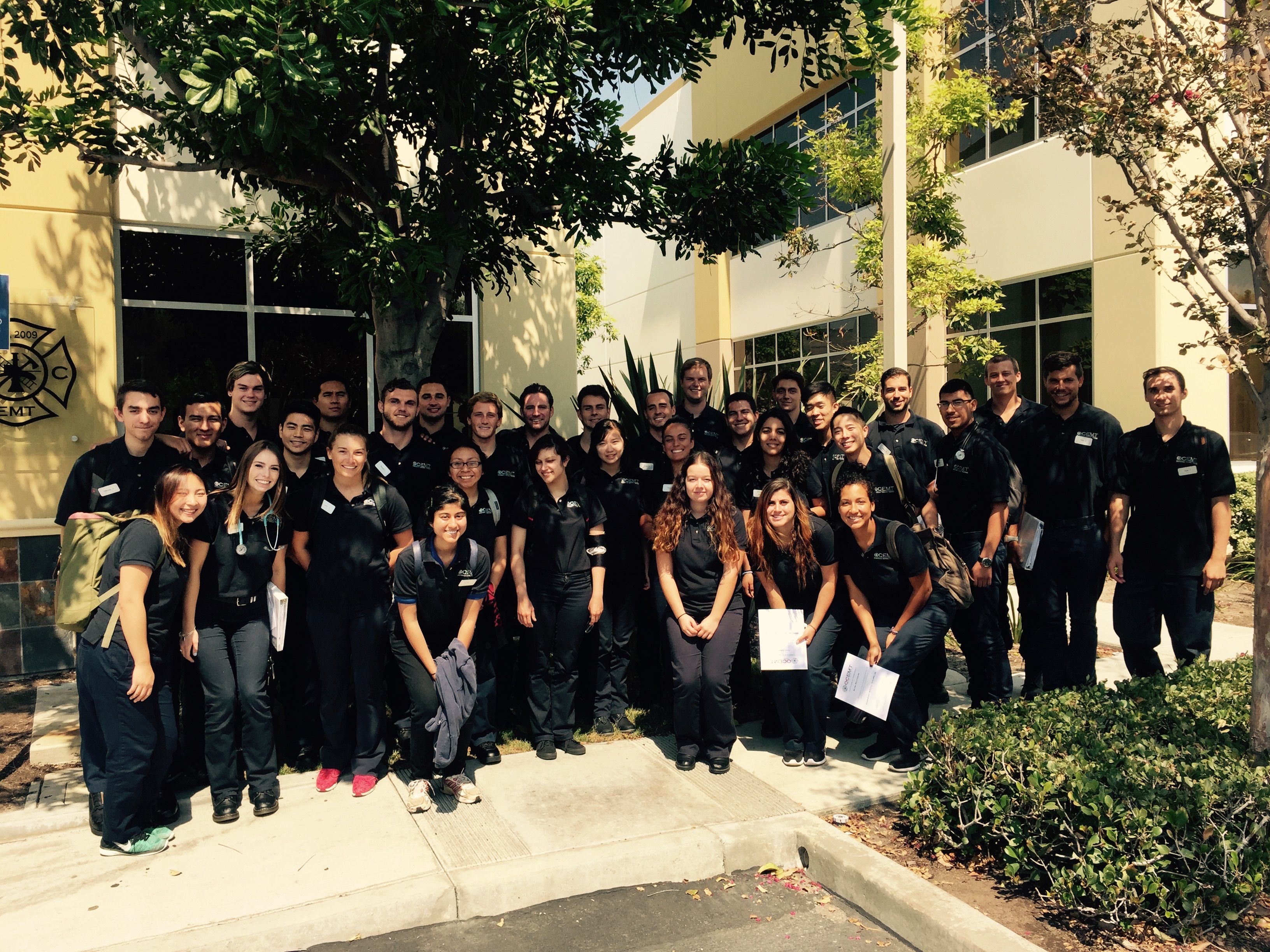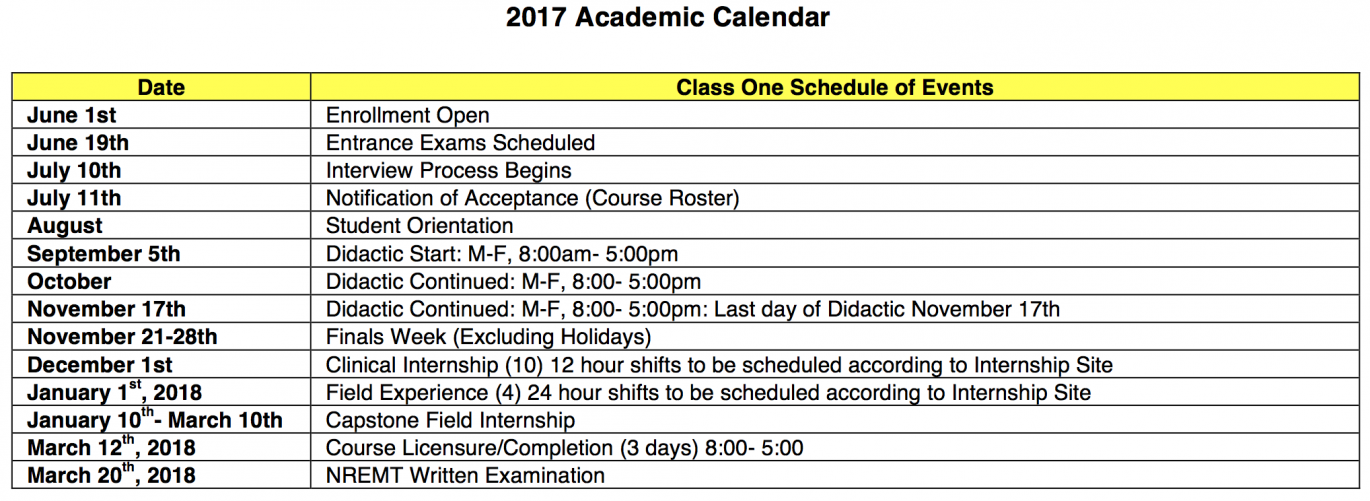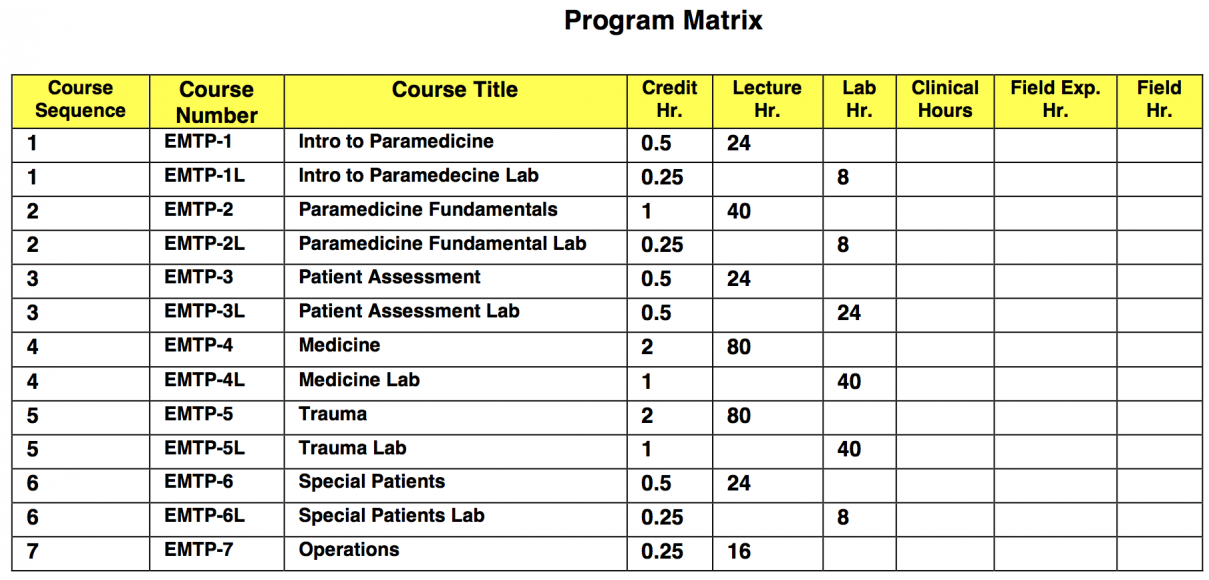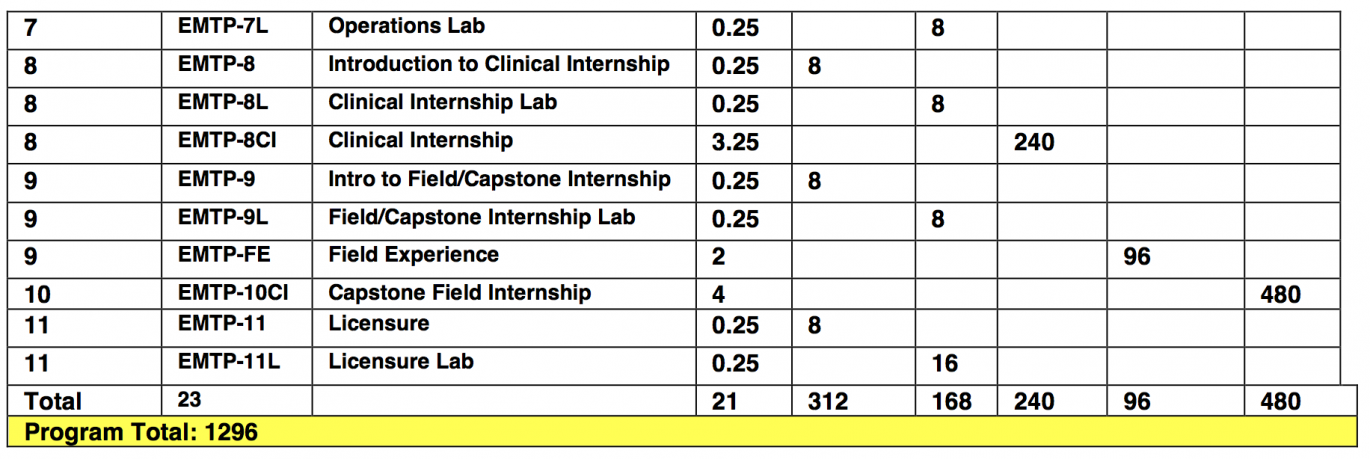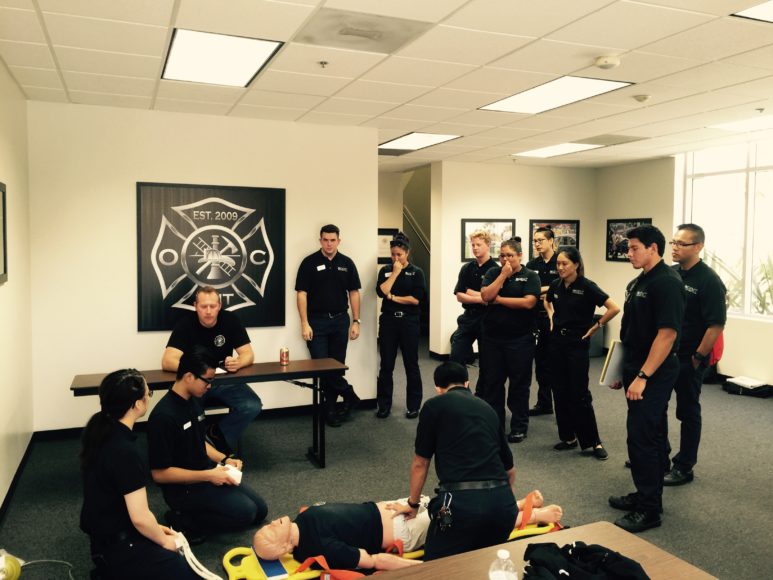Articulation Agreement
Orange County EMT has an Articulation Agreement with Columbia Southern University. Students who complete the Paramedic Program through OCEMT and enroll in Columbia Southern University will receive 21 lower level semester hours in CSU’s degree programs. Note: Hours may also be divided as follows: 6 hours may be placed in the Natural Sciences and the remaining 15 hours in electives. Please refer to the university for admissions and transfer policies.
Columbia Southern University
21982 University Drive
Orangewood, Alabama 36561 Admissions: (800) 977- 8449
Website: www.columbiasouthern.edu
Policy on Transfer of Hours/Units
The transferability of credits you earn at Orange County EMT is at the complete discretion of an institution to which you may seek to transfer. Acceptance of the Course Completion Certificate you earn thru OCEMT is also at the complete discretion of the institution to which you may seek to transfer. If the Course Completion Certificate(s) that you earn at this institution is/are not accepted at the institution to which you seek to transfer, you may be required to repeat some or all of your coursework at the institution. For this reason, you should make certain that your attendance at this institution will meet your educational goals. This may include contacting an institution to which you may seek to transfer after attending Orange County EMT’s Paramedic Program to determine if your Course Completion Certificate will transfer.
Title IV
It should be noted that Orange County EMT does not participate in Federal or State Financial Aid Programs.
Credit by Exam
OCEMT does not offer credit by exam
Advanced Placement Services At this time we do not offer Job Placement Services to candidates that have passed this program successfully. Orange County EMT has established well-respected professional relationships with many employers throughout Orange County. It is our desire to eventually become a recruiting platform for employment within these organizations.
Housing
Orange County EMT does not offer housing nor do we recommend any housing/dormitory facilities. It shall be up to the prospective student to find their own housing while attending the Paramedic program.
Visa
Orange County EMT does not admit students from other countries. It is not the responsibility of OCEMT to check the immigration status of our prospective students. A Department of Justice Background check will be performed for the EMT wishing to become licensed in Orange County in the near future. All instruction and audio/visual aids will be delivered in the English Language.
Experiential Credit
Orange County EMT does not award credit earned from another training institution and/or college or university. The Paramedic Program is an intense, challenging course that includes protocols that are specific to Orange County. Any previous education in Health Science or Emergency Medicine will be beneficial to the student, however, will not count as credit earned for this course.
Financial Aid
Orange County EMT does not provide financial aid programs in any way. All costs that are associated with enrollment into our program shall be between the student and their financial institution.
Distance Education
Orange County EMT does not provide distance education.
American Disability Act
OCEMT will follow the policies of the ADA as defined through “The NREMTs Americans with Disabilities Accommodations Policy for Educators and Students.”
a) For More information: www.nremt.org under general policies, ADA policy
b) Request the ADA brochure through the Program Administrator
Dismissal Policy
Failure to abide by all local and federal laws will be grounds for immediate dismissal from the program. Furthermore, all Rules of conduct found under “Program Code of Conduct” shall be followed with strict adherence. Any student dropped for violation of any policy shall be dropped from class without a refund. Any student found cheating will be immediately removed from class and dropped without a refund. Any student found under the influence of any intoxicant will be immediately removed from class and dropped without a refund. Violence or threatening behavior will not be accepted in any way. This will lead to dismissal and notification to local Law Enforcement. Failure to meet objectives stated in course achievement criteria will result in dismissal from this program. Also, any unlawful, unethical, or act seen as dishonest outside the guidelines set forth by the State of California EMS Authority or Orange County EMS may result in program expulsion. If such an occurrence does take place, there will be no refund of any kind for the student that has been separated from Orange County EMT’s training program. Student Probation Policy
Any student who receives an exam score less than 80% will be placed on academic probation for the duration of the course. Academic Probation consists of a signed document signed by both OCEMT and the student, which states the student has achieved an exam score below the minimum standard and is at risk of failing the course.
Student Attendance Policy
Students shall attend all course hours unless arrangements have previously been made through the Administration. In these cases a maximum of 3 class sessions will be excused before a student is dropped from the course at the discretion of OCEMT.
Leave of Absence Policy
Any student who is absent for more than 3 class sessions without consent from OCEMT will be dropped from the class, or will be placed on a Leave of Absence. If placed on a Leave of Absence the student will have the option to enroll in the next course.
Student Withdrawal Procedure
Any student dropping the course must do so in writing by completing a Course Withdrawal form. The form can be accessed on our website under “Student Access” or by requesting one through the Administrative Secretary.
Non- Discrimination Enrollment Procedure
OCEMT will not discriminate against enrolling a student from any gender, race, ethnicity, age, or disability. ALL students must meet the entrance requirements and are evaluated equally through the selection process.
Non- Discrimination Policy for Faculty
OCEMT will not discriminate against any faculty, employee, or prospective employee, based on gender, race, ethnicity, age, or disability. Faculty will be hired in accordance to the requirements listed in Title 22, Division 9, Chapter 4 of the California Code of Regulations.
Student Substitution for Staff
At no time will a student be substituted for staff during the Clinical Internship, Field Experience Internship, or Capstone Field Internship.
Complaint Procedure
“A student or any member of the public may file a complaint about this institution with Bureau of Private Post secondary Education by calling (888) 370-7589, or by completing a complaint form, which can be obtained on the Bureau’s Internet Web site.
Uniform and Grooming Policy
1. All students must maintain personal hygiene through all portions of the course
2. No ear-rings or piercings of any kind may be visible on male students
3. No facial hair other than a moustache is acceptable- Cannot extend below the bottom lip
4. Tattoos must be covered by long sleeves, pants or collared shirts.
5. OCEMT Uniform must be worn at ALL times unless otherwise advised by the Administration
a) Embroidered Polo
b) Pants
c) Black Belt
d) Black Steel Toed Boots or Shoes
Code of Ethics:
1. The Emergency Medical Technician provides services based on human need, with respect for human dignity, unrestricted by consideration of nationality, race creed, color, or status.
2. The Emergency Medical Technician does not use professional knowledge and skills in any enterprise detrimental to the public wellbeing.
3. The Emergency Medical Technician respects and holds in confidence all information of a confidential nature obtained in the course of professional work unless required by law to divulge such information.
4. The Emergency Medical Technician shall maintain professionalism and demonstrate concern for the competence of other members of the Emergency Medical Services health care team.
5. An Emergency Medical Technician assumes responsibility in defining and upholding standards of professional practice and education.
6. The Emergency Medical Technician assumes responsibility for individual and professional actions and judgment in both dependent and independent emergency functions and knows and upholds the laws, which affect the practice of the Emergency Medical Technician.
7. An Emergency Medical Technician has the responsibility to be aware of and participate in matters of legislation affecting the Emergency Medical Service System.
8. The Emergency Medical Technician, or groups of Emergency Medical Technicians, who advertise professional service, do so in conformity with the dignity of the profession.
9. The Emergency Medical Technician has an obligation to protect the public by not delegating to a person less qualified, any service that requires the professional competence of an Emergency Medical Technician
10. The Emergency Medical Technician will work harmoniously with and sustain confidence in Emergency Medical Technician associates, the nurses, the physicians, and other members of the Emergency Medical Services health care team.
11. The Emergency Medical Technician refuses to participate in unethical procedures and assumes the responsibility to expose incompetence or unethical conduct of others to the appropriate authority in a proper and professional manner.

